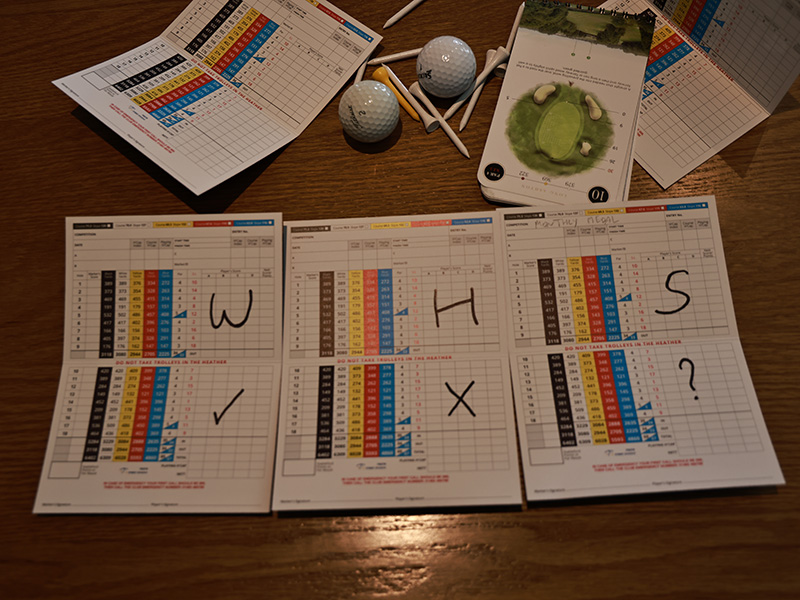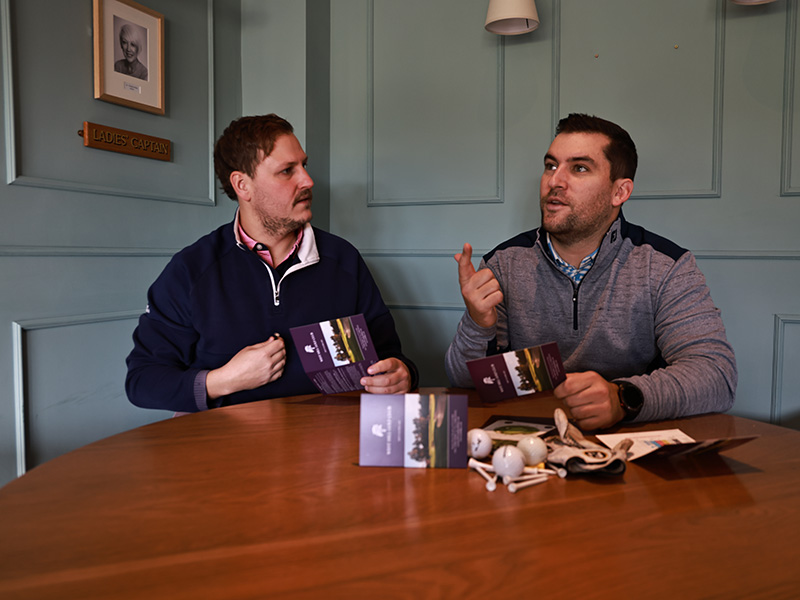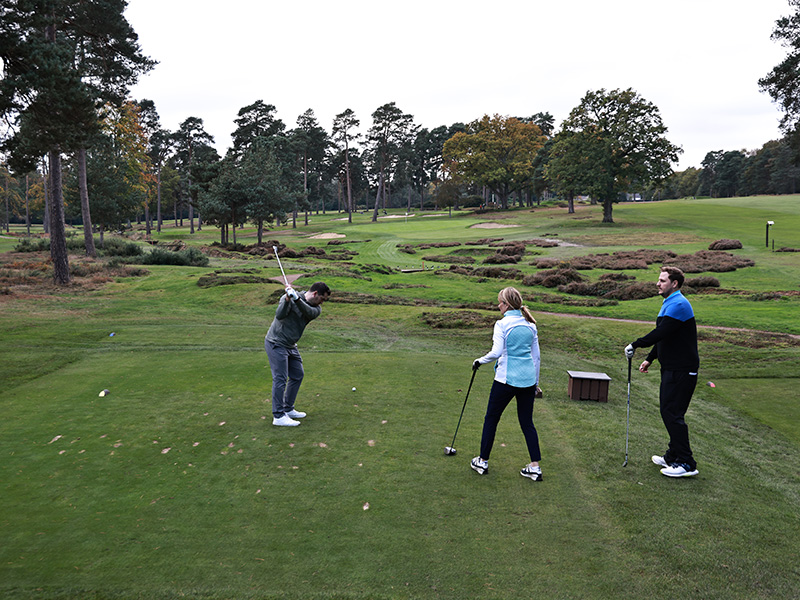
If you ask any traditional club member or nomadic golfer about the World Handicap System (WHS), they will most likely have an opinion that leans one way or the other.
This divisive topic is heavily debated far and wide, often forming the basis of many post-round clubhouse conversations where golfers struggle to agree on the benefits and limitations of the World Handicap System's impact on the sport.
Whether you love it, hate it, or feel totally indifferent, understanding the reasoning behind certain decisions and processes can help to provide clarity on what is a complex issue.
So, in order to educate and empower golfers, we put your questions to the England Golf WHS and course rating team and, in this article, share their responses...
Your World Handicap System Questions... Answered!
On a scale of 1-10, how pleased have you been with the WHS roll out?
The WHS rollout from England Golf was very successful, there were a lot of education materials and England Golf-led workshops given to counties and clubs to support the implementation. Of course, there are always learnings to take, and these have been put forward in our work plans for continuing the WHS education to every golfer, club and county.
What would you say is the biggest strength of the WHS?
There are many strengths of WHS and at different levels of the game. The amount of scoring data which is now available to the governing bodies is key, which will of course support decision-making and reviews. A key aspect though, is the increase within participation and opportunities for the sport to become more inclusive. WHS has been able to bridge the gap between hitting balls on the driving range, to a golfer walking onto the course. With a golf club being able to have more tee sets rated for both genders, it now provides the opportunity for more people than ever before to obtain a handicap and look to improve.
Would you ever consider revising the average number of rounds for counting cards to more like four from 20?
This isn’t something within England Golf’s power. The rules of handicapping is written and published by the R&A and USGA. We do have stakeholder forums and input, however, any changes only happen every four years, which is the year after the rules of golf revisions.
The score differential equation still confuses many. How would you best explain this in layman's terms?
A score differential measures the performance of a round in relation to the relative difficulty of the course that was played. It is measured by the course rating and slope rating. Your handicap is made up of your best eight score differentials from your last 20 rounds.

Are there any updates planned to the app?
We are always looking to improve the MyEG app, such as user functionality and increasing the safeguarding on inputting general play scores. The last major update included the track stats feature, where golfers can now update their general play rounds with greens and fairways hit, number of putts, and clubs used.
Eight from 20 seems a bit much considering a lot of people play that many times in a year and a lot can change in a year. Do you think the current timeframe of included scores is too wide?
20 was deemed the most appropriate based upon the playing characteristics of golfers. Some golfers can do 20 rounds in a month, others struggle to do that in two years. Ultimately, it gives a fairer reflection upon demonstrated playing ability and ensures handicap indexes move in accordance with performance.
Hypothetically, if everyone put in a card every time they played golf, how much easier would that make the job of accurate handicapping?
In part it would mean that every golfer is expected to input a score, which would reduce the risk of manipulation. It would certainly provide more data and input more scores in for PCC. It wouldn’t necessarily make the job easier, but certainly a bit different.
How difficult is it to marry the interests of nomadic golfers and traditional club members?
Not too difficult. The average club golfer is no different to the nomadic golfer, in terms of going out there and enjoying a round of golf and having fun! Our iGolf team are working hard with club relationships to ensure that our iGolfers get the opportunity to play member courses and encourage golfers into club memberships or competitions.

How big a decision was it to allow nine-hole rounds to count and how much pushback have you had on that?
Being able to submit a nine-hole round or play a nine-hole competition has given clubs more opportunities to create inclusion and increase participation. Essentially, not all golfers have the opportunity to spend several hours on a course, so being able to provide a product where they can submit a score, has been very positive.
What changes can we expect to see in the next iteration?
The last changes only went live in 2024, so we’ll not understand what the next changes will be until around 2028.
What area of the WHS do people feel the strongest about?
People feel that it's positive to have an opportunity to submit scores from competitions and/or general play, then be able to track it through the MyEG app or EG website. Furthermore, the transferability of the handicap from course to course is important and being able to submit a score too.
What would you say to people who moan about the WHS in terms of how difficult/impossible it is to find a system that works perfectly for everyone?
Of course everyone is entitled to their opinion, and like most things in life, when there is a significant change to a system that has been in place for many years, we expect people to voice those concerns. Ultimately though, the system is designed to help, aid and provide a more modern data-led approach to how we use our handicap. As previously stated, we are constantly reviewing and challenging ourselves to educate and guide those who use it.

Are you happy that PCC is now working effectively?
Yes. PCC is working exactly how it should. England Golf sent 8 million pieces of scoring data for the PCC to the R&A/USGA and it was found the calculation was out a little bit. So, it was changed in August 2023 to become more reflective. The PCC moves approximately 10% of the time. It is important that clubs ensure scores are submitted on the day of play, otherwise, they do not go against the PCC as it can only be calculated once (at midnight).







